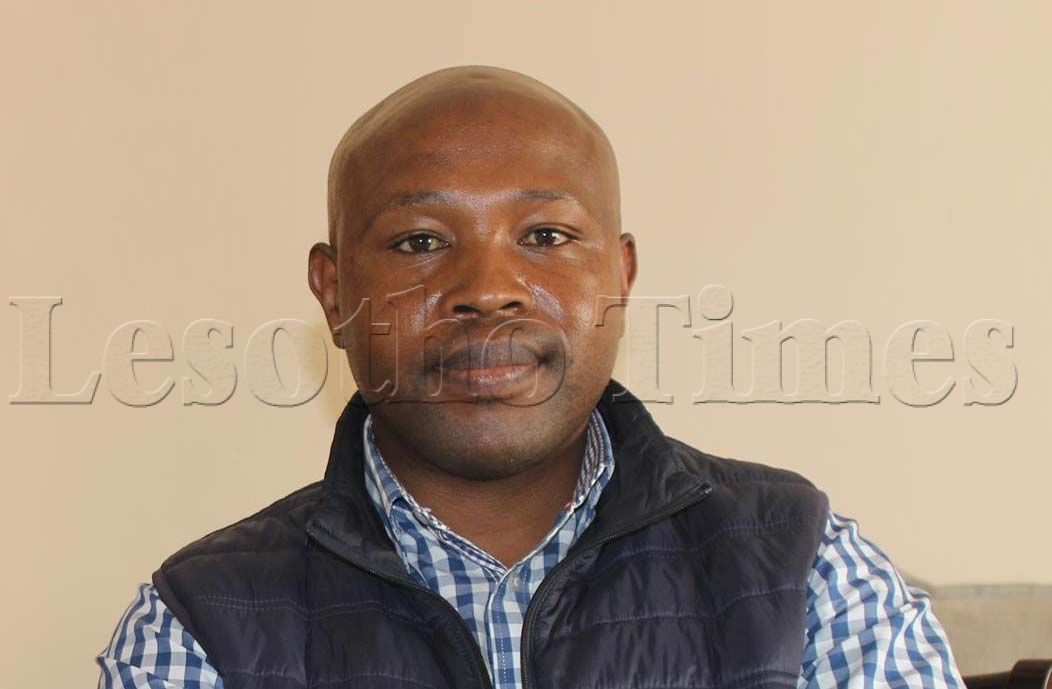Pascalinah Kabi
THE government is working on classifying its documents and correspondences and any media organisation which publishes confidential government information will be liable to prosecution, Prime Minister Moeketsi Majoro has said.
Dr Majoro said this in Maseru while addressing the media this week on the outcomes of a four-week induction course for cabinet ministers.
The move has been condemned by Media Institute of Southern Africa (MISA) Lesotho director, Lekhetho Ntsukunyane. Mr Ntsukunyane said it was “shocking” that the government was moving to impose restrictions on access to information, at a time when MISA-Lesotho and media practitioners were expecting parliament to pass the Access to and Receipt of Information Bill into law.
Dr Majoro came to power on 20 May 2020. Upon assuming the reins, he and his ministers had a four-week induction course to ensure every one of them was fully aware of the requirements of their jobs.
Addressing the media on the outcomes of the course this week, Dr Majoro said one of the modules the ministers studied during the induction was on the importance of maintaining secrecy and confidentiality with respect to sensitive government business and information.
He said it was an offence for the media or anyone else to publish or to be found in possession of classified government information and documents.
“We talked about the classification of information,” Dr Majoro said.
“Anybody who is not authorised to be in possession of classified documents is committing an offence.
“So, when the media gets hold of classified documents, you should know that it is illegal.
“We were trained on classification of government documents. Once classified, the contents of those documents cannot be leaked. Even your inside source is not expected to leak those documents.
“As the fourth estate, you are always referring to well-placed inside sources in your stories. We keep wondering where those inside sources are.
“Government documents are leaked to social media and at times top classified secrets are leaked by your inside sources. But we also have government documentation that is not classified and is openly available. This is not about media censorship but the classification is done for public motives and often it is done to safeguard the sanctity of the state,” Dr Majoro said.
He said in terms of the rules of classifying documents, some documents could be classified and remain confidential for up to 30 years. He said decisions made by leaders could remain classified long after they left office.
He said the induction course specifically targeted ministers who took oath of office when they were sworn-in in May this year. The oath, he said, included the promise not to disclose government secrets.
“We discussed this and stressed that all restricted government documents must bear a certain sign and should not be handled in the same way as unrestricted documents.
“Most documents are for public consumption but there are very good reasons why certain things must be kept secret and not to be prematurely released because when they are released, that may not be in the interests of safeguarding the stability of the nation.
“Some of the business of government must remain secret until a particular time when the documents can be declassified. There are decisions or conversations within governments and between governments that must remain secret until they are declassified.
“There is intelligence information that must remain restricted and secret. In most cases documents produced by the National Security Service (NSS) are secret and should not be leaked to the media houses to publish them,” said Dr Majoro.
Public Service Minister Semano Sekatle concurred saying the classification of the information was not aimed at persecuting the media but ensuring the stability of the country.
“We will not persecute the media but it must be known that the classification of information is important for the security of any country. No government would know peace if documents were not classified.
“Some of our documents will be classified as top secret and confidential and the media will be made aware of the documents which will be available for the public.
“No country can go without classified information, otherwise we will be heading into chaos, ours will be a chaotic state. In the developed world you can go to jail for publishing classified information,” Mr Sekatle said.
The government moves will have the effect of criminalising media operations.
MISA-Lesotho director Mr Ntsukunyane said with its latest moves, the government had shown that it was not committed to advancing democracy.
He said instead of denying the media information, the government should be enacting the Access to and Receipt of Information Bill. He said MISA Lesotho had been pushing for the enactment of the bill since 2008.
“It is sad that we have a government that seeks to deny media access to information in this day and age.
“Access to information is one of the pillars of democracy. Many governments across the globe are working to ensure that there is freedom of expression as well as access to information.
“It is therefore shocking that at a time when we were expecting the honourable prime minister to indicate that plans to enact the Access to and Receipt of Information Bill into law are afoot, the government is instead moving to impose restrictions which will further deny journalists access to information. This is unfortunate. It is really shocking,” Mr Ntsukunyane said.


